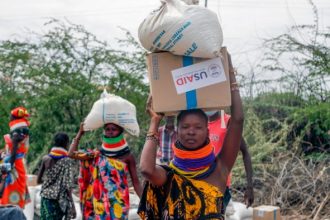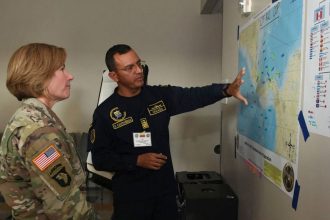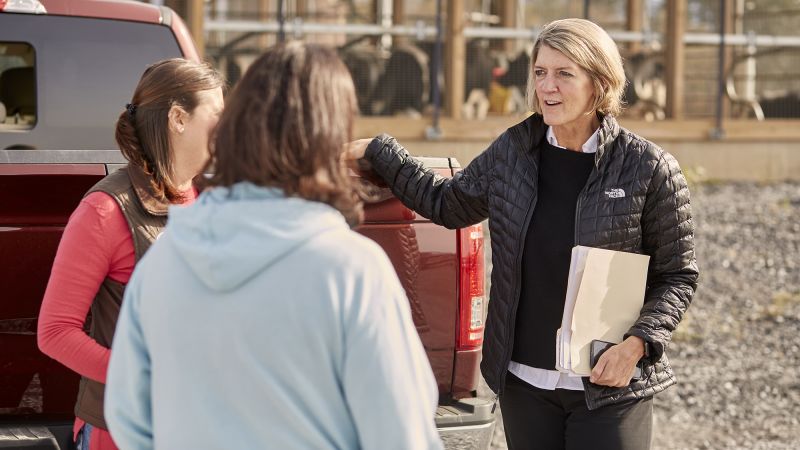In 2023, the surge in responsible investing hit a wall.
Environmental, social and governance (ESG) initiatives buckled under the pressure of economic and political forces, including efforts by congressional Republicans and conservative-led states to limit “woke” investments that prioritize “agendas and ideology.”
But in America’s Heartland, a century-old dairy cooperative and Fortune 500 firm continues to double down on its sustainability-focused investments in the land and in rural communities.
At the helm of Land O’Lakes is Beth Ford, the first woman to lead the $19 billion Arden Hills, Minnesota, cooperative, which has 9,000 employees and 2,809 member-owners.
Since 2018, when she became chief executive of one of the country’s biggest producers of butter and cheese, Ford has tapped the collective mindset of the company’s farmers, retailers and producers to unabashedly launch initiatives to further rural broadband access, reduce the company’s carbon footprint, address food supply concerns and promote environmental stewardship.
At a time when social and environmental investments have been politicized, Ford and Land O’Lakes are staying the course.
Those efforts simply make good business sense, she told CNN.
“We’re focusing on the things that are most important to our members, their families and to their businesses,” she told CNN. “And from my perspective, I don’t get involved in politics. We don’t talk politics. We talk policies that are enablers for farmers, for the food supply.”
“I talk about trade,” she added: “I talk about the strength of the US dollar … I talk about [how] my responsibility is to make evident to everybody the things that we need to do to continue to invest, to be protective for all of us in our food supply.”
Under Ford, Land O’Lakes deepened its investments in Truterra, a subsidiary that bridges data-driven technology with sustainability practices. When Truterra was launched in 2016 under the name SUSTAIN, the business unit explored initiatives such as feed additives to reduce methane emissions from animals, a plastics recycling process and public-private partnerships to reduce water usage and improve soil health.
In 2021, Truterra started a program in which it offered upfront cash payments to farmers who sequestered carbon, which involves capturing and storing greenhouse gases naturally produced by plants.
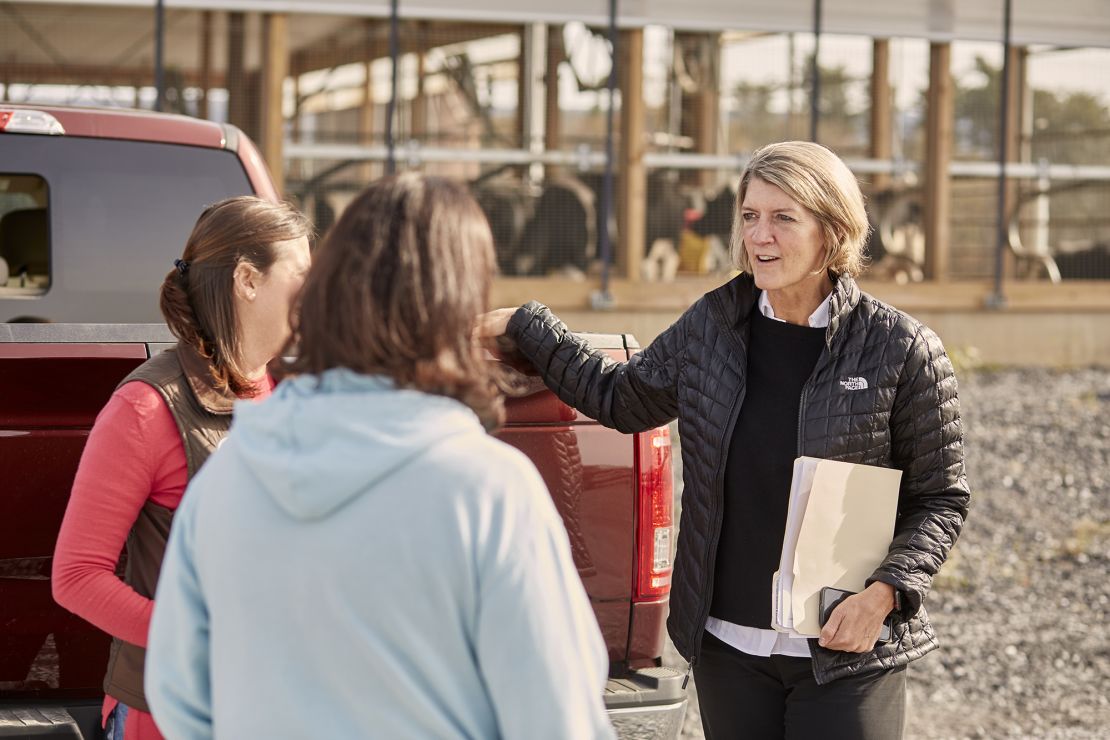
Paying out $20,000 on average and up to $100,000 in certain cases, Truterra paid farmers $4 million in its first year for the sequestering of 200,000 metric tons of carbon. In 2022, those payouts grew to $5 million for 273 farmers participating.
“We have agronomists, we have one of the first-of-its-kind data models, so we’re working with farmers directly, and it’s about practice change,” Ford said. “And so it’s not really a buzzword, it makes the land more resilient. It makes the farmer more resilient for climate change.”
In her role, Ford said she has become a fierce advocate for science and technology, both on the corporate side as well as in the regions that produce the nation’s food.
In August, the US Environmental Protection Agency lauded Land O’Lakes as a leader in on-farm sustainability initiatives that help members balance profit and their environmental goals. The EPA and the Hershey Company gave $2 million to Land O’Lakes member farms in Pennsylvania.
“I like to mention that 18% to 19% of the population lives in rural America, and they comprise 47% to 48% of the military,” she said. “These are families that are invested in this country, they are constantly doing what is necessary and hard. I admire our farmers, our members. I will be a loud advocate on their behalf because I think it is right for all of us as American citizens.”
Throughout her life and career, Ford has long drawn inspiration from her mother.
Ford’s mother, Carol, held critical caregiving roles both professionally — as a nurse, a therapist and a minister — and personally, raising eight children with her husband on a working-class budget.
That resilience, humility and work ethic became deeply engrained in Ford, who was the fifth of eight children in the Sioux City, Iowa, family.
In a 2018 interview with CNN’s Poppy Harlow, Ford recalled how her mother told her that “while we may not have everything, we have enough, and given what we have, much was expected of us.”
“She said, ‘Do you understand what is expected of you? Do you understand how much you have? Don’t disappoint,’ and I was like, ‘I’ve got to work hard to not disappoint,’” Ford told Harlow at the time.
From the age of 12 and through college, Ford held a variety of jobs, including roles in detasseling corn, babysitting, working as a night cashier and cleaning toilets.
The versatility went on to define her nearly 40-year career, at seven companies — including Pepsi, Mobil and Scholastic — in six industries.
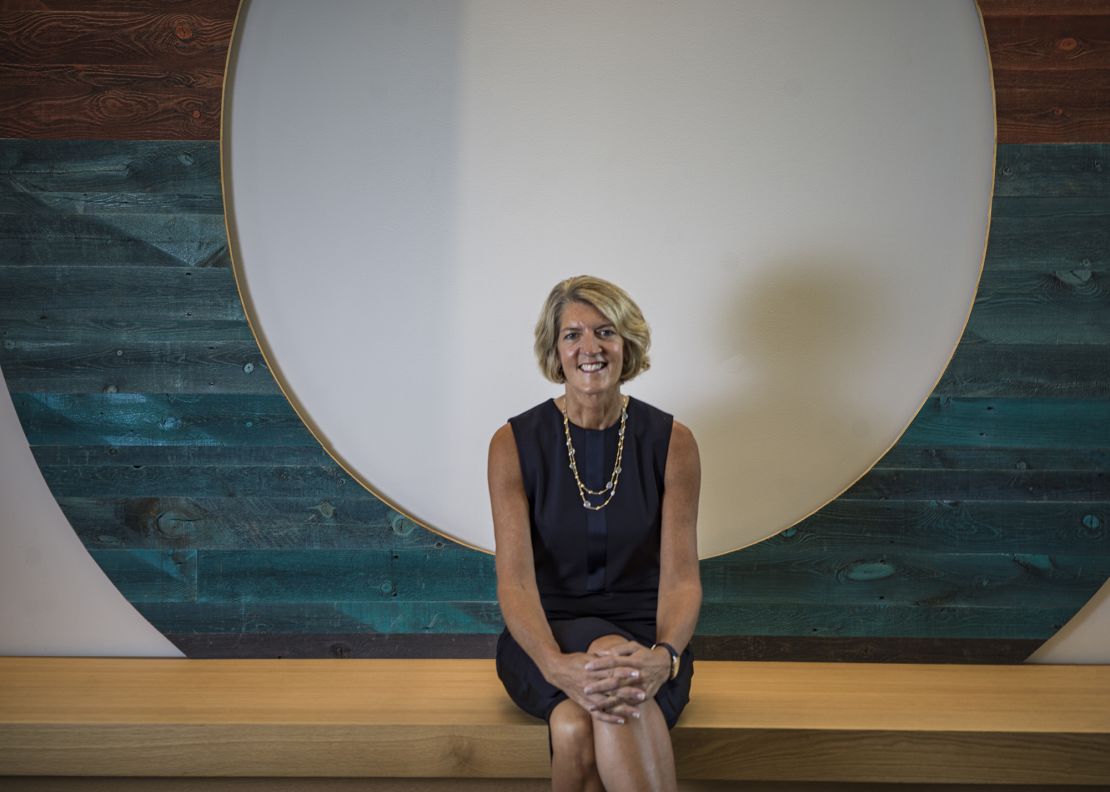
“I think that the biggest risk I’ve taken professionally is I’ve moved when I thought I needed to learn something,” she said. “I’ve been in business now for 37 years, and many times I wasn’t familiar with the industry. I don’t think one summer of detasseling corn makes me a farm expert.”
She added: “So, the risk is the willingness to be embarrassed, the willingness to leverage your curiosity, to admire the folks who do know and to feel confident and that it’s OK to say, ‘I don’t know. I need your help. Can you help me understand this?’”
But early on at Land O’Lakes, Ford also sought to leverage her past experience in other industries to chart a vision for the company: that it is a leader in not just butter but also ag-tech.
In 2020, Land O’Lakes convened the American Connection Project coalition to advocate for public and private investment in high-speed internet infrastructure in rural communities. The coalition, which eventually grew to more than 175 members, saw some of its advocacy efforts realized in the passage of the Biden administration’s bipartisan infrastructure bill.
Ford said the coalition is part of her commitment to push for investments that protect the food supply and the people who produce it.
In agriculture, and especially in commodity-centric businesses such as dairy, change is constant — whether that’s climate events, geopolitical conflict or trade disruptions.
But incorporating environmentally sustainable practices or initiatives isn’t always the easiest sell, said Lucas Fuess, economist and senior daily analyst at Rabobank’s RaboResearch Food & Agribusiness team.
Many shareholders and prominent politicians, especially in redder states, have been vocal against ESG practices. In Iowa, Republican Governor Kim Reynolds made anti-ESG investing a focus for the 2023 legislative session, calling the investments “not only legally suspect” but “financially reckless.”
Earlier this year, nearly two dozen state attorneys general — many of them from agriculture-heavy states like Iowa, Idaho, Kansas and more — warned more than 50 of the country’s largest asset managers against investments “corrupted in favor of a radical social agenda.”
With “ESG” and related initiatives in the crosshairs, that means Ford’s efforts carry risks for herself, for her company, for the co-op members and even the buyers browsing their grocery store shelves.
For those efforts to be successful, companies and entities have to be on the same page from the farmer level to the co-op level to even the retail and consumer, Fuess said.
“A lot of times in tackling sustainability challenges or ESG challenges requires a cost, and I think there’s a lot of discussion on, ‘Where does that money come from?’ and ‘How do we make sure at the end of the day we’re also economically sustainable?’” he said.
“I think there continues to be discussions on whether this is something the consumer will have to pay for, or something that has to be absorbed by the processor … or pushed onto farmers to bear,” he said.
At the same time, there’s also great potential, he said.
“For as much as this is challenging in discussing, I think there’s also an incredible amount of opportunity that can come out of this in working toward these goals and reducing emissions and seeing real accomplishments, and we could hopefully have a really, really good story to tell as the years flow by.”
Investing in the Earth and in people
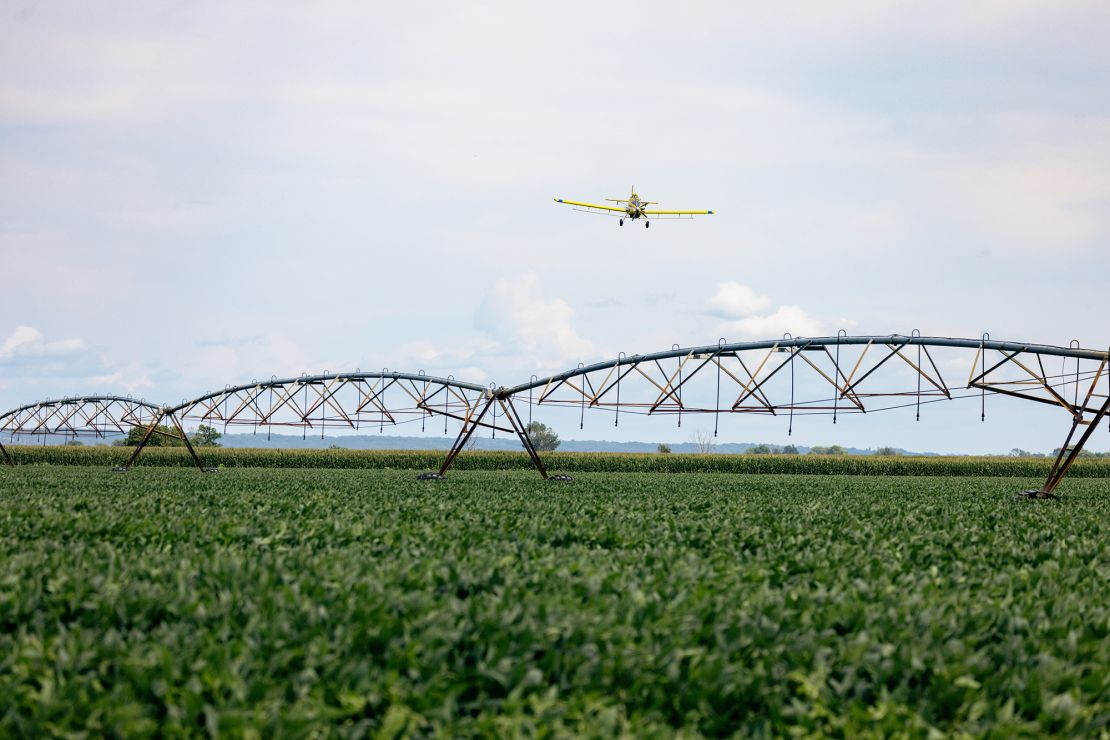
In Iowa, sixth-generation farmer Kelly Garrett has long been a champion of regenerative farming practices. In 2020, he gained media attention for selling carbon credits on the open market. He sold credits for the estimated 22,745 tons of carbon he removed from the atmosphere from 2014-2019 using those farming practices.
“The way I looked at it was this is free money for things that I’m already doing and already believed in, and I believe in them [economically],” Garrett told CNN.
The attention from his sale eventually led him to Truterra, which appealed to Garrett because of its backing from Land O’Lakes.
“The carbon market has kind of been like the wild, wild West, because it’s a little bit unregulated,” he said. “A lot of carbon companies are startups, and they don’t have decent funding. And when the funding dries up, the ethics can kind of dry up.”
The weight and financial backing of a century-old cooperative in Land O’Lakes brings an element of security to a practice that some farmers are skeptical of, because they may have been burned in the past, Garrett said.
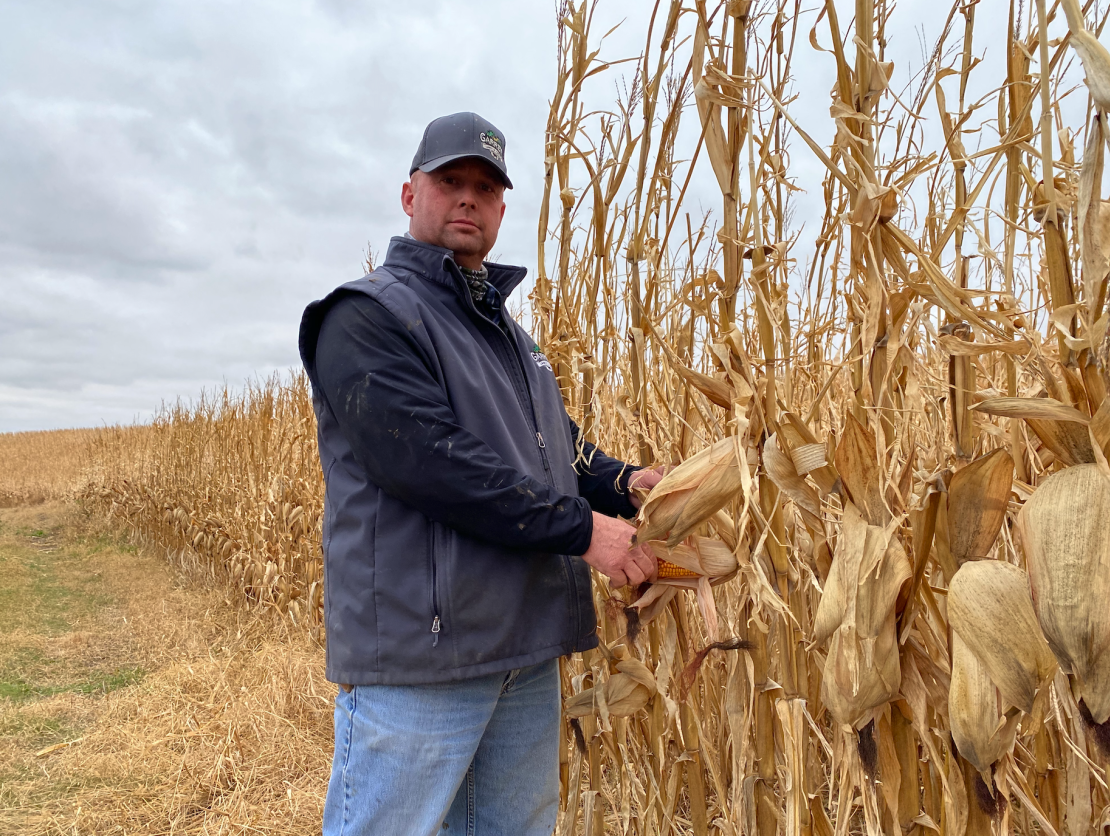
“Let’s be honest here, I farm the way I farm because I think it’s financially the best thing,” he said. “And when I speak to other farmers, I talk about my high-yield path and my sustainable path. The two paths are converging, because we’re trying to farm more in tune with Mother Nature.”
In addition to investing in Truterra as well as agriculture technology and economics, Land O’Lakes and Ford remain active and vocal on topics such as agriculture research funding and immigration reform at the federal level.
Those types of efforts and investments are especially critical at a time when weather is getting more extreme, water is growing more precious, worker shortages hamper productivity, persistent inflation saps profits and loans are not only more expensive but also harder to come by, Ford said.
“The concern sometimes that I have is that there isn’t an understanding of what is required in the food system, the interconnected nature, the fact that we all need to focus on this,” she said. “This isn’t a rural/urban issue, this is an American issue. This is important to all of us.”
Read the full article here


